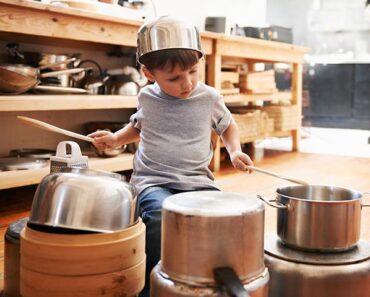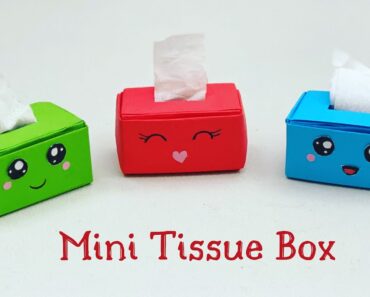An artistic and curious young child, Jordan Brown* has struggled with anxiety since the age of five. But it was not until COVID broke out in 2020, when Jordan was 10, that their worries raged out of control. They began washing their hands repeatedly until they bled, and they engaged in elaborate clothing-related rituals, like taking off all their clothes when they got home, putting them on a garbage bag, spraying their hands and feet with cleanser, and then walking up one side of the stairwell to the bathroom for a half-hour shower.
Jordan’s mother, Alex Brown,* a Guelph, Ont-based single mom, found herself completely overwhelmed trying to manage these symptoms, which turned out to be signs of obsessive-compulsive disorder (OCD).
OCD is a difficult and sometimes heartbreaking mental health disorder that affects about two to three percent of children and adolescents. Parenting a child with OCD can be a challenge, but experts say there is hope. Treatment for OCD works by helping kids confront or “feel” their difficult feelings so they won’t feel compelled to perform rituals as a way to block them. The right strategies can help children to recover.
What is OCD?
Obsessive-compulsive disorder or OCD is a form of anxiety that involves obsessions and/or compulsions. Obsessions refer to recurring, upsetting and unwanted thoughts that can cause a lot of distress and worry, while compulsions are the rituals that the person feels compelled to do as a way to get rid of the unwanted feelings.
What are the signs of OCD in children?
Children with OCD may have unhealthy obsessions. For example, they may be obsessed with avoiding germs or contamination, keeping their family and themselves safe, or with symmetry or having things “just right.”
They might also have a variety of different compulsive behaviours. They might repeatedly lock and unlock doors or check the stove if they are concerned about safety; they may keep washing their hands if worried about germs; or they may seek reassurance from their parents that they aren’t bad or that nothing bad will happen to them. Some children will also count things or line their toys up in a certain way or order them symmetrically as a way to not think about something scary.
How is OCD in children diagnosed?
An OCD diagnosis is somewhat subjective, says Dr. Christine Klinkhoff, a clinical psychologist at Broadview Psychology in Toronto. “The amount of time the rituals take is less significant than how much they interfere with the child’s life,” she says. “Does the child have a difficult time leaving the home in the morning, or transitioning to new activities? If they need to organize things, are they able to pivot to doing something else, when needed, or does shifting gears create a lot of distress?” You might want to ask your child why they are performing the ritual to see if it is something they feel compelled to do and if it upsets them.
Healthcare professionals will also consider if the child might be suffering from PANDAS or PANS, a rare condition where an infection, often strep throat, can cause an abrupt and dramatic onset of OCD. (Learn more about PANDAS here.)
At what age can a child develop OCD?
OCD can appear at any age, but when it develops in childhood, it typically happens between ages eight and 12. It’s rare for OCD to be diagnosed before age five.
Can OCD go away on its own?
If left untreated, OCD tends to get worse, not better, Klinkhoff says. This might be a scary thought for parents whose kids are struggling, but there is hope: “With treatment, OCD can improve or disappear,” she says.
What’s more, treatment may be easier to access now than it has been before, she adds. “COVID has opened up a few more doors because now people even in remote areas can meet with a therapist online.”
How is OCD treated in kids?
The gold standard for OCD treatment is a type of cognitive behavioural therapy (CBT) called exposure and prevention therapy (ERP). This involves systematically and gradually exposing the person to things that they are fearful of so they can learn how to tolerate rather than avoid their feelings. The therapist may help them rate the things they are scared of from one to 10, with one being the least scary and 10 being the most. The child will then be exposed to something on the lower end of the hierarchy (a three or a four), and work their way toward tolerating more stressful triggers. The goal is to help the child not perform the ritual that they normally do to calm themselves, and to recognize that nothing bad will happen as a result.
Although antidepressants are sometimes used with children who have severe cases of OCD, Klinkhoff says that these medications only work about half of the time, and she usually starts the treatment with ERP.
How to help a child with OCD at home
1. Don’t accommodate the rituals
Although this can be difficult if your child is very distressed, it is best to not help them carry out the OCD rituals. Instead, encourage them to cut down on the length of time they perform it, and reward their efforts to do so successfully. To help distract them from the rituals, Klinkhoff recommends offering them ways to self-soothe, like giving them a soft toy or animal, or a smooth fidget toy to play with. Or you could help regulate their temperature, for example by putting a cold ice pack on their neck if they are extremely anxious, or giving them a warm bath if they are only mildly anxious.
2. Reduce reassurance
When a child is anxious, they will often ask for reassurance—for example, “Are you sure the door is locked?” Klinkhoff recommends resisting the temptation to provide any reassurance. It often doesn’t help, and more importantly, it robs your child of the opportunity to practice calming themselves down on their own. There are, of course, exceptions to this rule. “If there is a huge emotional burst and you need to get them out the door for something important, it is understandable for parents to make the choice to prioritize their child’s short-term needs and provide reassurance,” she says.
3. Externalize the condition
Labelling the problem and externalizing it—that is, separating it as a problem that does not reside within the child—can help to destigmatize it. For example, Klinkhoff suggests talking about the “OCD monster” (or any other name that sounds mean) and saying things like, “We don’t like the OCD monster, and this is what we can do to tackle it.”
You might also want to work with your child’s teacher so they can support efforts being made at home. The teacher can help validate your child when they are struggling with comments like, “It seems like you are having a hard time with this,” while also avoiding accommodating their rituals.
For Alex and Jordan Brown, hope is finally coming through a combination of regular ERP therapy and bi-weekly equine therapy. The two-hour equine sessions began with Jordan feeding grass to a horse; today, they can confidently ride a sizeable Clydesdale.
“It’s one of the only times that Jordan is totally focused on something other than anxiety,” says Brown. “It’s the child I remember.”
*Names have been changed

































